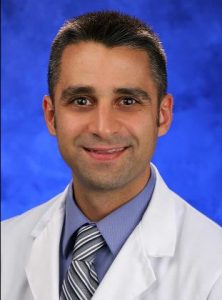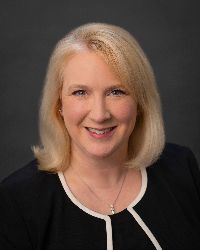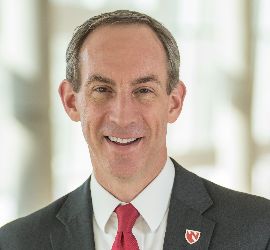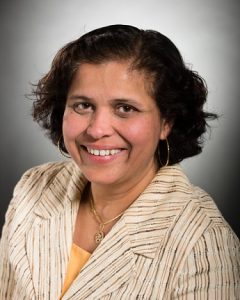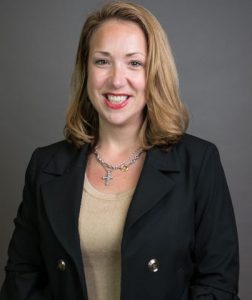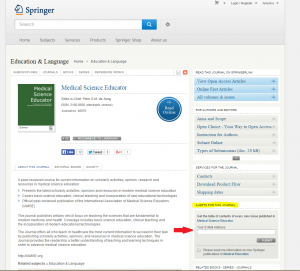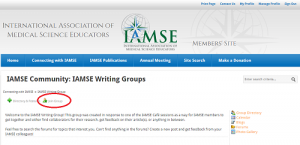[The following notes were generated by Rebecca Rowe, PhD.]
IAMSE Webinar Series, Spring 2020
Speakers: Mamta K. Singh, MD, MS; Clifford Packer, MD from Case Western Reserve University School of Medicine (CWRU SOM)
Title: “Health Systems Science (HSS): The Clerkship Years in Medical School”
Series: Evolution and Revolution in Medical Education: Health Systems Sciences
Objectives
- To explore the ways in which HSS can be integrated into clinical clerkships
- To identify the use of HSS within clerkships evaluations
- To recognize how SOAP –(V)alue integrates clinical reasoning and value- based care at the bedside.
- To describe the impact SOAP-V had on medical students in the clinical clerkship years.
Dr. Singh started the presentation with an overview of the curriculum during the first 18 months for the medical students at CWRU SOM where the students are introduced to HSS. Rather than focus the discussion of HSS from the logistical point of view, Dr. Singh hopes to present her part of the webinar of HSS from the philosophical perspective by asking the question “Why is learning HSS critical for our future physicians professional development?”
Since this series was interrupted owing to COVID-19, our world has changed a great deal from the pandemic and the protests have exposed many weaknesses in our health care system such as inequities in COVID-19 deaths. It has been documented that the highest COVID-19 deaths have been consistently observed among those living in disadvantaged parts of society.1 This disadvantage coming in the form of poverty, crowding, or by population of color.
Recognizing these systems vulnerability, it is time to draw the borders of our health systems responsibility. A good place to start is with the professional development of our learners and our faculty.
Dr. Singh added a disclosure stating she is not trying to claim that a HSS curriculum is panacea by which we fix all of societies’ ills. With this said, the HSS curriculum provides us with a road map by which we can start to expand the outlook of professional development for both our faculty and learners. It helps us to re-image the borders of what a physician’s responsibility is.
The health professions that rose to the challenge during our recent pandemic, did not learn these skills overnight. These are skills that are innate. As we as medical educators built systems to train health care professionals, it is important to note that we have these inherent ‘change agents’ and we as medical educators need to ensure our curriculum is aligning with this.
Three key points of this Webinar
- HSS curriculum at CWRU SOM
- HSS Assessment
- HSS in Clerkships – SOAP -V
HSS curriculum at CWRU SOM
HSS is not just a third pillar at CWRU SOM, but is really, truly integrated with the basic and clinical sciences.
Tenants of HSS integration
- Longitudinal, developmental curriculum
- How to improve health care quality, increase the value of care provide, enhance patient safety, deliver population-based medical care and work collaboratively in teams.
- How to advocate for patients and communities and recognize the socio-ecological determinants of health, health care policy and health care economics.
- Demonstrate Systems Based Competency
- Development of Change Agents
HSS at CWRU SOM’s Elevator pitch to First Year Medical Students in Block 1: “We are only as good as we diagnosed” “We are only as good as the care we deliver”. Thinking your job is done after delivering the diagnosis is a very limited way of thinking of what physicians can do. A physician’s responsibility is not just about how well we can diagnose and how well our clinical reasoning is. Physicians are only as good as the care they deliver! Required deeper thinking. After the diagnosis is made, how are you as the physician going to deliver the care, what kind of coordination needs to be included, what kind of population health data would be important to consider, what is the value base components that allows for the care to be at the bedside?
This will allow us to answer the question “Are we actually delivering the care we set out to do?
Overview of the first two year curriculum at CWRU SOM is called Foundations of Medicine and Health and show the students are getting exposed to HSS. The curriculum integrates the basic, clinical and health system sciences over the span of 18 months. Topics covered includes: Immersive HHS, System and Scholarship: Community Engagement, QI, Population Health, Patient Navigator, Professional Learning Plans, Interprofessional Clinical, Tuesday Seminars (Health Disparities, Advocacy, Health Policy), Physical Diagnosis, Communication Skills, and Community Patient Care Preceptorship. All of these components are designed to help the student doctor answer the question “Are we actually delivering the care we set out to do?
A breakdown of Block 1, which is an immersive 5 week curriculum titled “Becoming a Doctor” was shared. Very early on the students are taught part of their role as a physician, they will have to know population health, determinants of health, health systems patient-centered care and how to bring it all together while they are thinking of the basic and clinical sciences.
Another component of the pre-clerkship years is Systems and Scholarship, which is a longitudinal curriculum in years 1 and 2 that enables the students to apply QI, population health and research skills to ensure patient care meets the Institute of Medicine’s 6 quality domains: safety, patient centeredness, equitable, efficient, timely and effective.
Block 1 focuses on awareness and System and Scholarship and the longitudinal curriculum is getting the student to apply these skills. This allows the students to be able to know how to approach a gap in care in the same manner they would approach a gap in physiology.
To summarize the principles behind what CWRU SOM is trying to do is to not only develop systems thinkers but also Change Agents. Students need to see themselves as “Active Participants” or “Co-Producers” of systems improvement.
If we link the professional development to systems improvements and to patient’s outcomes, there will be very few physicians or trainees that will think that this is not part of their job.
HSS Assessment
Assessment drives learning. What are some important ways that we can see if our students are actually learning the concepts behind HSS. Are the students able to reflect? Are they able to adapt? Can the students actually think at the systems level? Use portfolio method, which all students completed during years 1, 2 and 3. The portfolio allows students to give examples of when they have thought about the HSS curriculum and reflected on it.
Year 1 portfolio focuses on reflective practice, interprofessional team skills, and research skills. In years 2 and 3 start to expand to things that are more pertinent to HSS.
Have milestones for systems based practiced where they use 9 competencies specifically around systems based practices. These show the student at each development level what they need to understand in order to meet this larger competency. This has been mapped out across the years.
Starting this year Rising 3 years (between years 3 and 4) will do a portfolio on system based practice by addressing this prompt: “Describe a specific patient scenario over the last year in which you (and your clinical team) took into consideration economic and cultural factors, individual and family contributions, and the availability of health care system resources when making a clinical decision? Reflect on how you think this impacted the patient’s care and whether it helped or hindered care.”
Dr. Singh is hoping to impress on the audience is how the students are really thinking, not only about their clinical decision making, but how the larger system fits, and how the larger HSS learning has helped them get to this point. By reflecting and writing essays about this, we hope for them to see how these are truly integrated and not just three pillars standing by themselves.
Dr. Packard takes to provide us with a very specific and successful example of how this is happening at the clerkship level by introducing us to SOAP – Value A new pathway to high value care.
SOAP-V
SOAP-V was developed initially at the 2013 Millennium conference the subject of which was teaching value added care and the aim of this conference was to teach our future physicians to be judases in evidence based in their use of diagnostic tests and therapeutics.
SOAP-V is basically the SOAP note with value added. The thinking behind this was it was not only an opportunity for students to not only learn, but by using SOAP-V they could actually practice high valued care in authentic patient experiences by using it every day on the wards and in the clinic.
The beauty of SOAP-V in addition to its simplicity, it that it can be used with minimal to no faculty training, it can be attached to authentic patient experiences, and it would be ebbed in the normal work flow.
A plot of Life Expectancy vs. Cost of Care shows the U.S. health care spending is 2 – 4 times higher per capita than other developed nation yet our outcomes such as life expectancy is lower than many other developed countries. So why is the happening and how can we fix it?
SOAP-V takes a bottom up approach starting with medical students to address this.
An Overview of High Valued Care
An example of a high value test or treatment is when the benefits outweigh the risks.
Benefits includes improving outcomes, changes management and meet’s patient’s goals.
Risks include causing harm to patients, cost to patients and cost to the system.
In developing SOAP-V, the decision was made to boil it down to three main points:
- Evidence of value: before ordering a test consider whether the result would change management. Before ordering treatment consider the evidence for the treatment vs. no treatment or an alternative treatment.
- Patient values: Consider discussing with the patient their goals and values. Does the patient recognize the potential harm of the test/treatment compared to alternatives?
- Relative cost: Consider the approximate cost of the test/treatment. Are there less costly alternatives with similar benefits? Where to get cost information: Healthcarebluebook.com and iTriage which is a mobile app.
Students are given a laminated SOAP-V Card that lists information on the components of the SOAP note – Subjective, Objectives, Assessment, Plan, and Value. Under value are the three points given above. The SOAP-V Card are given to all second year students before they go ont the wards.
There is evidence that if medical students are exposed to high value care early in their training that they will carry this information with them into their careers. Such a study is Spending Patterns in Region of Residency Training and Subsequent Expenditures for Care Provided by Practicing Physicians for Medical Beneficiaries JAMA 2014, 312 (22):2385-93.
Implementation of this in a study using 3 medical schools Penn State, Harvard-Beth Israel Deaconess, and Case Western Reserve. Each school had an intervention and control arm where the students in the intervention arm were reminded several times a week if they were using high value care (HVC). Data was collected using pre and post surveys on the attitudes of medical students, residents and faculty.
The results of the study resulted in several publications.
The key take away from this study: Moser et al. Soap to Soap-V: A new paradigm for teaching students high value care. Am J Med. 2017; 130 (11):1331-1336, showed:
- Medical students are well positioned to bring value discussions into patient care activities.
- Students at 3 medical schools used the SOAP-V framework during team presentations to apply high value care in their medical decision making.
- The intervention group reported higher self-efficacy toward addressing the economic health care crisis, initiating team discussion on unnecessary tests or treatments, and considering potential cost to patient and system; these changes were not present in the control group.
Another key take away from this study is this is a durable effect where it was maintained not only during the clerkship but at 6 and 12 months after the clerkship ended.
Results of thematic analysis of focus groups also published in Am J Med. 2017; 130(11);1331-1336 where three themes emerged:
- SOAP-V served as a generalizable tool across clinical experiences
- SOAP-V emphasized topics like cost and patient harm that were usually avoided.
- SOAP-V facilitated value conversations.
Other SOAP-V Publications:
Moser EM, Huang G, Packer CD, Glod S, Smith CD, Alguire PC, Fazio S. SOAP-V: Introducing a method to empower medical students as change agents in bending the cost curve. J Hosp Med. 2016; 11(3):217-220.
Moser EM, Fazio S, Packer CD, Glod S, Smith CD, Alguire PC, Huang GC. SOAP to SOAP-V: A new paradigm for teaching students high value care. Am J Med. 2017; 130(11):1331-1336.
Packer C.D. (2019) Adding Value to the Oral Presentation. In: Presenting Your Case. Springer, Cham.
There are currently 11 medical schools using SOAP-V up from the original 3 medical schools.
SOAP-V 4 minute animated video https://www.youtube.com/watch?v=3PLHpx1Kilw
Teaching soap-v to late second year students before they head out for their clerkship year
High Value Care Tools
References
Chen JT, Krieger N. Revealing the unequal burden of COVID-19 by income, race/ethnicity, and household crowding: US county vs ZIP code analyses. Harvard Center for Population and Development Studies Working Paper Series, Volume 19, Number 1. April 21, 2020. https://tinyurl.com/ya44we2r

